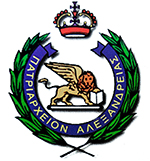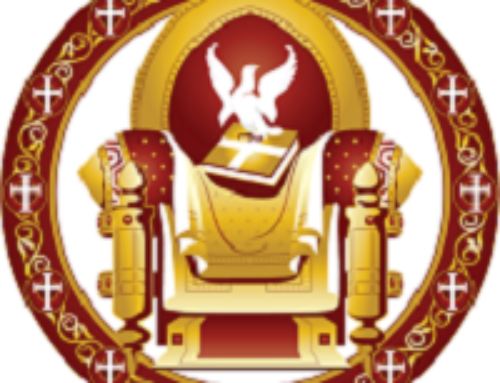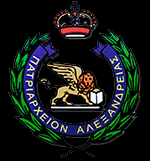|
“Blessed Christians, wherever you may be, come together to bring about the successful completion of this Holy work and your names will be commemorated on the day of the sacred consecration of this house of worship. Sanctification will be your reward from God as it is sung in the church. Sanctify those who love the beauty of Your house, oh Lord from whom comes grace and mercy. The prayer and the blessing of Our unworthiness be with you all.” It was with these enthusiastic words that the then Patriarch of Alexandria, Ierotheos II (1847-1858) invited Greek Christians to contribute in whatever way and by whatever means possible to the building of the church in Alexandria, which would be dedicated to “the most blessed and ever virgin Mary Theotokos of the Annunciation”. At that time, the Greeks did not live in one particular part of the city, but were spread out around Alexandria. The only church which served their religious needs was the Patriarchal Monastery of St. Savvas, which was “outside the city”. It is worth noting here that although in modern Alexandria St. Savvas is considered to be situated in the heart of the busy city center, in those days, one had to pass through both dangerous neighborhoods and isolated and deserted parts in order to reach it. The establishment of the church of Evangelismos was therefore most necessary. Naturally, before the proposal by the Patriarch for the building of this new church could be realized, the co-operation of the eminent, distinguished, and the financially well-off Greeks of Alexandria was required. One such man was Mikhail Tositsas, a great benefactor and the first President of the Hellenic Community of Alexandria who later became the first Consul of Greece in Egypt. Tositsas, a close friend and colleague of the great reformer of Egypt Mohamed Ali, was, in fact, the most suitable person to take on the role of building enthusiasm and zeal for the project amongst the Greeks of Egypt. “The special respect of the ruler of Egypt was based on the fact that Mikhail Tositsas was a man of extraordinarily broad horizons with a wide ranging intellect, excellent understanding and vision.” The word went out and the Greeks of Egypt responded. The Patriarch himself, intent upon the success of this grand scheme, made his own contribution so that others might follow suit – such was his faith in the ability of the community to complete this project and build this dream in the land of the Nile. Ierotheos wrote at the time: “The word will spread quickly that in the great city of Alexandria a splendid church was built during the golden age of their excellencies the Consuls and prominent merchants and with the encouragement of the great Mohammed Ali who said to them ‘Construct a church as grand in order that I myself will be filled with joy when I look upon it. And if you do not have the ‘firman’, I will grant it to you.’ ” When the necessary preparations had been made – meetings, election of a committee to oversee the project and, of course, the collection of money to support the scheme – a date was set for the official laying of the foundation stone of the church of the Annunciation of the Virgin – Evangelismos tis Theotokou. It was a joyous occasion not only for the Patriarch, but also for all Greeks of Egypt. The beauty of this great building would serve to emphasize not only the faith and piety of the Greeks towards their Church, but the distinction of the Hellenic community. On 16th November 1847, Ierotheos officially laid the foundation stone in the presence of the members of the Hellenic community of Alexandria. And then the building began – a work which lasted almost ten years, before the church opened its doors officially on 25th March 1856, and was consecrated by Patriarch Ierotheos II. This impressive church, which is 41.8 meters long and 23.6 meters wide, standing at a height of 32.4 meters, is built in the Basilica style and covers an area of 1155.23 m2. The architect was Ermetes Pierotis and Lukowicz carried out the completion of the church. The marble iconostasis, the Patriarchal Throne, the Synthrono and the pulpit were the work of Jacob Varoutis from Constantinople. George Philippides produced the doors, windows, pews, icon canopies and other carved wooden items. The gilt-work of the iconostasis, the Throne and the pulpit was the work of Mikhail Larozas and the Iordanou brothers did the internal paintwork. The church of Evangelismos is also home to many valuable, beautiful and skillfully made prayer stalls, which house the icons of St. Gerasimos, St. Spiridon, the Virgin of Kykkos, St. Paraskevis, Evangelismos and the Virgin of Myrtidiotissa. The most important occasions of the Hellenic community have been celebrated in this beautiful church – including, not only the enthronement and funerals of the Patriarchs, but also the taking of important and historically significant decisions for the community. Royalty and Heads of State have passed through its doors and worshipped at its altar. Services have been held on all the significant national occasions for our country. In 1889 the anniversary of Patriarch Sofronios’ 50 years as a bishop and the 25th anniversary of his elevation to the Patriarchal Throne was celebrated here, under the auspices of the great benefactor George Averof. Chrysostomos Papadopoulos Professor of the University of Athens and later Archbishop of Athens, was the dean of the church (1909 – 1911). The funerals of important figures of the Hellenic Community have been held here, including those of Tassos Neroutsos, K. Zervoudakis, K. Salvagos, K. Kazoulis, G. Zagarolas, G. Averof, M. Napier, Th. Kotsikas and others. The weddings of Alexander Benakis and Maria Synadinos, Al. Choremis and Elenie Tamvakos, A. Saktouris and Olga Dimitriadou, Georgos Melas and Ioulia Salvagos, N. Thomopoulos and Danai Lagoudakis were also held here. The Church of Evangelismos is undoubtedly a beacon of the Hellenic presence in Egypt and a faithful servant of the community, which, throughout the 150 years of its life, has catered for the religious, spiritual, pastoral and cultural needs of the Greeks of Alexandria. These few words are offered in honor of these services, to celebrate the 150th anniversary of the laying of the foundation stone – in honor of the zeal and enthusiasm, love and faith which have been dedicated to this glorious church – a church which symbolizes the devotion, unity and strength of the Greek presence and those who work to serve it and ensure its productive and dynamic future in this, our host country of Egypt. |





